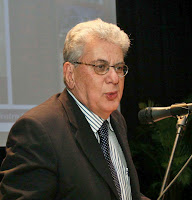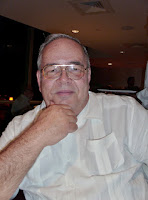POLITICA | Merkel, After Discordant G-7 Meeting, Is Looking Past Trump
 |
Chancellor Angela Merkel of Germany in Munich on Sunday. “
The times in which we could rely fully on others, they are somewhat over,” she said.
CHRISTIAN BRUNA / EUROPEAN PRESSPHOTO AGENCY
|
By ALISON SMALE and STEVEN ERLANGER
MAY 28, 2017
BERLIN — German Chancellor Angela Merkel, Europe’s most influential leader, has apparently concluded that the United States of President Trump is not the reliable partner her country and continent have automatically depended on in the past.
Clearly disappointed with European leaders’ inability to persuade Mr. Trump to publicly endorse NATO’s doctrine of collective defense — or to agree to common positions on Russia, climate change or global trade — Mrs. Merkel said on Sunday that traditional alliances were no longer as reliable as they once were, and that Europe should pay more attention to its own interests “and really take our fate into our own hands.”
Her strong comments were a further indication that Mr. Trump’s trip did not go down well with influential European leaders and that it seems, at least from the Continent’s perspective, to have increased trans-Atlantic strains rather than diminish them.
Ms. Merkel did not mention Mr. Trump by name, and she also spoke of Britain’s decision to quit the European Union, a move seen as weakening trans-Atlantic ties and leaving the Continent more exposed.
Speaking on the campaign trail after contentious summit meetings in Belgium and Italy, Ms. Merkel said: “The times in which we could rely fully on others, they are somewhat over.”
“This is what I experienced in the last few days,” she said.
Given this new context for international relations, she said, “that is why I can only say that we Europeans must really take our fate into our own hands — of course in friendship with the United States of America, in friendship with Great Britain and as good neighbors wherever that is possible also with other countries, even with Russia.”
But Europe must stand up for its own interests and become more self-reliant, she said, including on defense, an issue she has often raised since the British vote to leave the bloc. “We have to know that we must fight for our future on our own, for our destiny as Europeans,” Ms. Merkel said.
The German chancellor, who is seeking a fourth term in elections in September, made her comments in a beer tent at a campaign event in Munich.
Mr. Trump’s refusal to endorse the Paris climate accord was the most vivid sign of division between the United States and its allies. But the American president, who returned home on Saturday night after a nine-day trip overseas, also scolded Germany for its trade practices and lectured NATO members for not adequately supporting the alliance financially.
And possibly lessened ties with the United States and Britain were not the only issue for Ms. Merkel: She also had to intervene last week with the Turkish president, Recep Tayyip Erdogan, in Brussels to settle a dispute over visits to German troops stationed in Turkey.
On Saturday, Ms. Merkel, who is balancing the imperatives of preserving the alliance with the United States and sustaining her re-election effort, was unusually direct in discussing what she called unsatisfying talks on climate change, which is an important issue for many German voters and a hallmark concern for the chancellor, who first made her mark in the 1990s shepherding an international accord on the environment.
Ms. Merkel, with President Emmanuel Macron of France, expressed disappointment with the unwillingness of Mr. Trump and his administration to back the Paris accord, although Mr. Macron said it appeared that Mr. Trump had at least listened to the arguments of the other leaders from the Group of 7.
Ms. Merkel, however, sounded a somewhat bleaker note. “The whole discussion about climate was very difficult, not to say unsatisfactory,” she said. “There’s a situation where it’s six — if you count the European Union, seven — against one.”
“This is not just any old agreement, but it is a central agreement for shaping globalization,” she said, adding, “There are no signs of whether the U.S. will stay in the Paris accords or not.”
On Twitter, Mr. Trump said he would decide in the coming days.
The president has pronounced the trip a resounding success. On Sunday, after being restrained while abroad, he returned to form, writing a string of Twitter posts. Among them: “Just returned from Europe. Trip was a great success for America. Hard work but big results!”
The Group of 20 meeting of world leaders will be held in Hamburg, Germany, in July, and that will afford more time for Mr. Trump to discuss the climate change pact not just with the leaders of other Western countries, but also with nations like China, which signed onto the accord after wrestling with hard questions about its effect on the country’s development.
_________
Alison Smale reported from Berlin and Cologne, and Steven Erlanger from London. Alissa J. Rubin contributed reporting from Paris.





Comentarios
Publicar un comentario